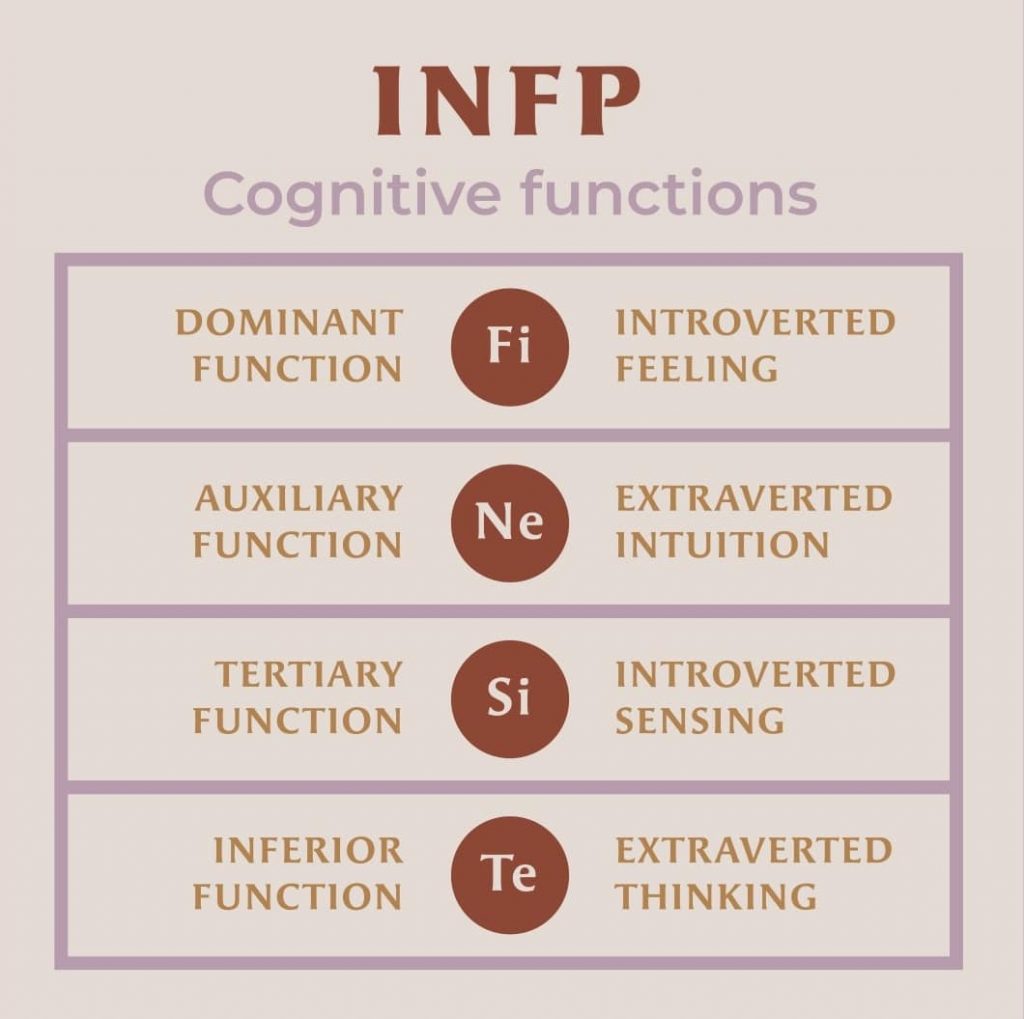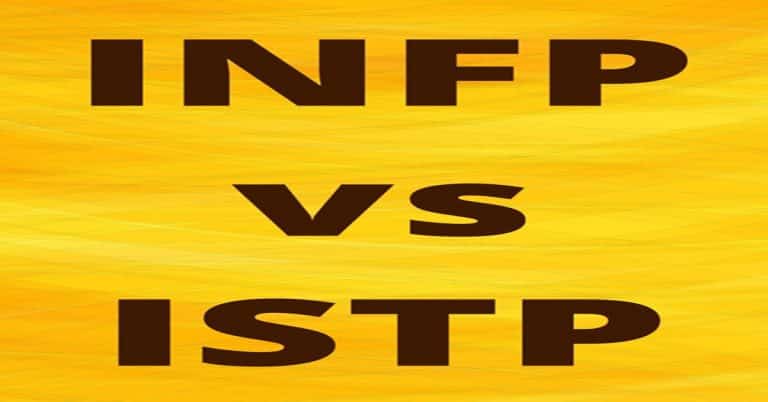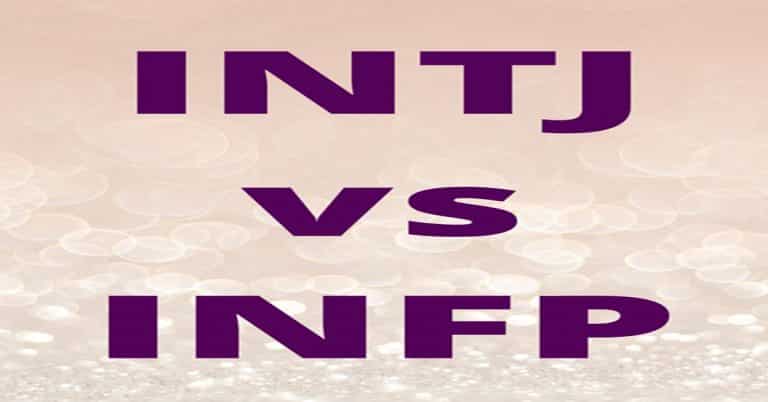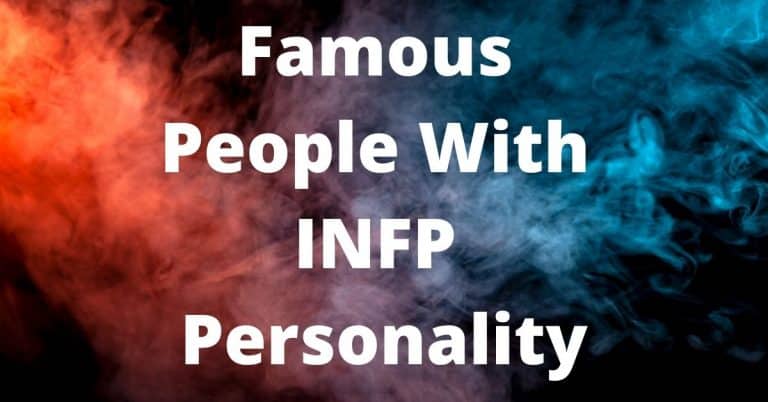INFP – The Mediator
Contents
INFP Meaning:
The INFP personality type, also known as The Thoughtful Idealist, is defined as having the following tendencies – Introversion, Intuition, and Feeling & Perceiving. The INFP has also been referred to as a healer of sorts. They are resoundingly empathic, sympathetic, passionate, and devout. While their idealism may inspire, motivate, and bring meaning to their lives, it also runs the risk of setting expectations much too high, especially for themselves.
INFPs also tend to act and think outside of societal norms and traditions, preferring instead to carve their own path or niche. INFP’s are relatively rare, consisting of only 4 percent of the population. The INFP personality type is slightly more common in women at 5 percent compared to men at a slightly lower 4 percent. INFP’s can be primarily defined as being idealistic, with an unwavering and steadfast loyalty to their values and ideals above all else. The INFP tends to be heavily introspective, especially given their introverted and Intuitive preferences. These tendencies allow for truly innovative and profound insights and ideas. However, these same tendencies can also lead to a certain detachment from the world, especially when it is at odds with how they perceive or envision it to be. INFP’s are on a constant search and path for meaning and higher enlightenment.
Interestingly, one of the founders of the Myers-Briggs Type Indicator, Isabell Briggs Myers, reported in as an INFP.

INFP and Career:
INFP’s have the potential to be deeply passionate and dedicated workers. They are profoundly imaginative and inquisitive, which, more often than not, results in innovation. The INFP is captivated and motivated by possibilities; however, they also tend to run the risk of neglecting the realm of the practical. INFP’s tend to also have a strong sense of empathy and compassion, being particularly concerned about the care and well-being of others and those around them. Given the INFP’s Introverted & Feeling preferences, they find that they are most productive and motivated when they can manifest their ideals into the world while also helping and developing others. INFP’s also tend to utilize creative modes to manifest these ideals into the world, showing a particular affinity towards language and writing.
INFP as a Direct Report:
INFP’s are intrinsically supportive and collaborative, making them an ideal part of a team. They have a unique ability to unify and create harmony in conflicting or divisive personalities and opinions of any given team. INFP’s tend to work towards a goal or a purpose because it fundamentally identifies and aligns with their ideals. Suppose an INFP truly understands and believes in a goal. In that case, they will pursue and dedicate themselves wholeheartedly and without compromise. Unlike many other personality types, an INFP is not motivated or encouraged by competition and tends to avoid highly competitive situations and environments. This tendency can be confounding and frustrating for leaders of the INFP, as what commonly motivates themselves or other members of the team may not seem to be of any particular interest for the INFP. Therefore, an INFP’s leader must establish and relay the purpose and value behind their mission or goal or run the risk of them becoming disengaged or de-motivated.
INFP as A Leader:
The INFP as a leader tends to have a strong sense of ethics. This resolute integrity is borne from their idealistic tendency. It creates a very defined and nurturing work environment that can inspire a team to flourish, develop and grow. INFP’s adopt a more pedantic or educational approach with their team. This approach naturally leads to a mentor-protégé relationship that can be profound for both the INFP and the individual. The INFP takes great pride and satisfaction in developing others and helping them realize their full potential. This makes for many enduring relationships.
INFPs are also creative problem solvers and can find out-of-the-box solutions for simple and complex problems. This ingenuity makes them indispensable on any given team, but especially when this out-of-box thinking is encouraged and nurtured amongst their team.
As they adopt more of a facilitator approach as a leader, INFP’s tend to be very gentle in their communication and interactions. They encourage and appreciate the ideas of others and see the opportunity for learning and development in any interaction, conversation, situation, or problem.
This supportive and gentle approach does indeed have its merit and works well when reigned in; however, it can also potentially lead to avoidance or conflict aversion on the part of the INFP. As INFP’s want to grow and support their teams, they are not necessarily at ease or most comfortable when there is potential dissent or disagreement. This aversion also can lead to difficulty in making decisions, especially when there does not seem to be a clear, correct, or right course of action. As such, although INFP’s can make truly incredible and inspiring leaders, they prefer instead to carry that responsibility, sometimes preferring instead to work within the team rather than lead it.
INFP Professions:
Introverted and Feeling, INFP’s tend to be the most comfortable and inspired in positions and careers that help others. Although they primarily become energized by being on their own to explore inwardly, INFPs fundamentally want to help and, indeed, heal others. As such, INFP’s have the potential to make highly effective anthropologists, psychologists, sociologists, therapists, and veterinarians.
Also, given the INFP’s affinity to developing and nurturing others and given their propensity to developing a mentor-protégé relationship, they can make for highly effective educators and teachers. However, as the INFP tends to avoid large gatherings and may not be at most ease with public speaking, they may prefer teaching roles that do not lend to large crowds or classrooms, such as elementary teachers and high school teachers, librarians, and professors.
INFPs also have an ever-evolving understanding and vision for the world. When INFP’s express and imprint these ideas on the world, the result can be profound and inspiring. Therefore, INFP’s also can be great artists and designers, such as graphic design, fashion design, photography, writing, and fine arts, being possible professions for the INFP.
Although INFP’s have a fair selection of professions their preferences are suited for, some may want to be avoided. These are largely attributed to their Introverted and Feeling preferences and include Sales, police officers, military officers, and judges. However, as with all personality types, this is not to say that the INFP could not be extraordinarily successful in these fields. Rather, it is to say that it simply may not be as a comfortable fit for their natural tendencies.
Interestingly, INFP’s have statistically been shown to be among the personality types with the lowest average income. They also rank among the personality types most dissatisfied with their jobs. Perhaps unsurprisingly, INFP’s are more likely than other personality types to be self-employed.

INFPs and Interpersonal Relationships:
INFPs’ natural tendencies make them close and loyal friends and lovers. They are always supportive, always willing to assist wherever needed. INFPs truly enjoy and take satisfaction in watching and playing an active role in the growth of those around them. INFPs tend to have a select and contained group of close friends instead of a large friend network, especially given their Introverted tendency. INFPs are commonly not comfortable or at ease in large gatherings or social situations and prefer a more intimate experience. Also, given their affinity for Introversion, INFPs do not want to spend extended periods outside of themselves. They prefer the opportunity to process and make sense of new stimuli often.
INFP’s in Friendships:
INFP’s tend to seek out and associate themselves with personality types that share similar beliefs and commonly include the INTP (Introvert, Intuitive, Thinking and Perceiving), the INFJ (Introverted, Intuitive, Feeling & Judging), ENFPs (Extrovert, Intuitive, Feeling and Perceiving), and, of course, fellow INFP’s. The majority of these personality types are Introverted, except for the ENFP, who shares the same NFP tendencies but prefers energizing themselves by interacting with the outer world. When the values and ideals align, the INFP makes a fiercely loyal and supportive friend and ally.
Conversely, some personality types may not necessarily complement the INFP initially. These include the ISTJ (Intuitive, Sensing, Thinking and Judging), The ESTP (Extroverted, Sensing, Thinking, Perceiving), the ESTJ (Extroverted, Sensing, Thinking and Judging), and the ESFJ (Extraverted, Sensing, Feeling and Judging). INFPs tend to struggle with those personality types that are Extrovert and Judging, as these approaches to the world are fundamentally different from their own. This is not to say that these types cannot form a relationship, but rather that they are much rarer and can be considerably more challenging. However, if a successful relationship is forged, both the INFP and the other personality types have great growth potential.
INFP’s in Romantic Relationships:
Like their friendships, INFP’s primarily seek out partners who identify with similar values, beliefs, and values. Once engaged in a relationship, the INFP is a devout partner who is compassionate, caring, supportive, and, above all else, loyal.
INFP’s are also highly tolerant in relationships and nurture and encourage their partner to enjoy and pursue the world and any interests they have within it. However, this is lax, or laissez-faire temperament only applies in so long as their partner does not intrude on any of their intrinsic values or beliefs.
INFP’s can also tend to be sensitive in relationships, which can be particularly challenging and potentially dangerous, given their aversion to conflict. Instead of addressing or expressing their feelings to their partner, the INFP may escape inside themselves and rationalize it independently. This avoidance can take its toll on a relationship over time and should be kept in check. INFP’s do enjoy and prefer to have their independence and the opportunity to self-reflect and often introspect. Therefore, they are most compatible with a partner who recognizes and balances the INFP’s spiritual and emotional needs, regardless of personality type.
Conclusion:
INFP’s have the potential to provide immense value in both interpersonal relationships and the workplace. Their compassion, empathy, and altruism foster a supportive environment where others feel comfortable developing and growing. Also, the INFP has a strong sense of ideals and, although this can lead to sensitivity or narrow-mindedness when they are faced or confronted with ideas or believes that does not align with their own, INFPs can also make for profound artists when they work to express these ideals into the world.
INFP’s prefer strong and close relationships where they can support and nurture those they value most and motivate and guide them to grow and unlock their full potential. INFPs have a strong preference for harmony in their lives and, indeed, in the lives of those around them. As such, they are at their best when they can find and maintain this harmony.
While they can make effective and contributing members of a team, INFP’s tend to work best autonomously and appreciate and enjoy the opportunity for problem-solving by using creative or unique solutions. This approach is the spark for true innovation on the part of the INFP and can lead to many profound and inspired inventions or ideas.
INFP’s should be aware of and cognizant of their potential to be overly sensitive, as it can lead to serious withdrawal from the world. Also, INFP’s are primarily ideological. Although this is where they find their motivation, purpose, and meaning within the world, it can also impede if it is not reigned in. If an INFP is too strict in their idealism, they put themselves at risk for being too far removed or divorced from reality and may find that no one or nothing can live up to their high expectations, including themselves. Naturally, this can lead to various issues, including disappointment, loneliness, and a reduced sense of self-worth.
However, INFP’s tend to place a high value on harmony, which brings a balanced approach to most things, including their idealism.
You can find information on famous people with INFP personality types such as celebrity actors, sportsmen, characters and other historical characters with this personality type.







